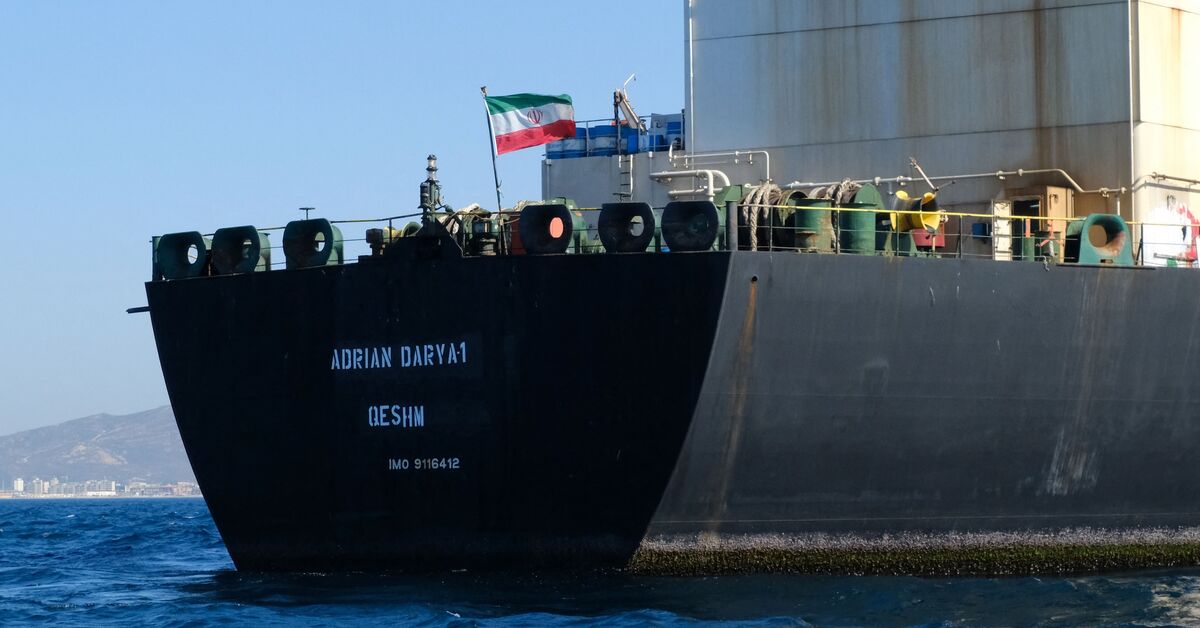WASHINGTON — The Trump administration announced on Wednesday what it called its most extensive set of Iran-related sanctions since 2018, targeting a “vast shipping empire” involved in transporting oil and petroleum products from Iran and Russia.
Through a network of oil tankers, container ships and front companies, the Treasury Department alleges that Mohammad Hossein Shamkhani is able to exert control over a significant portion of Iran’s crude oil exports, most often to buyers in China.
Hossein Shamkhani is the son of Ali Shamkhani, a key political adviser to Iran’s supreme leader who was sanctioned by the United States in 2020. Proceeds from the oil and petroleum sales benefit both the Shamkhani family and the Iranian regime, the department said.
The network employs a range of methods to conceal its activities, including creating front companies and regularly changing ships to avoid detection. Hossein Shamkhani, whom the Treasury Department believes operates from Tehran or the United Arab Emirates, uses the alias of “Hugo Hayek” on his Dominica passport.
The sanctions target more than 115 individuals, entities and vessels across 17 different jurisdictions, including the United Arab Emirates, India, Turkey, Singapore and Switzerland. Deputy Treasury Secretary Michael Faulkender said their blacklistings underscore “the deep corruption at the heart of the Iranian regime.”
“Hossein Shamkhani’s insider access as a regime elite has enabled him to amass ill-gotten wealth at the expense of the Iranian people,” Faulkender told reporters in a briefing.
Since taking office in January, the Trump administration has sanctioned more than 500 Iranian and Iran-linked individuals, entities and vessels. On Feb. 4, President Donald Trump signed an executive order meant to increase economic pressure on the Islamic Republic and “drive Iran’s export of oil to zero.”
Speaking on condition of anonymity, a Treasury official said the administration does not anticipate sustained disruption to global oil markets as a result of its latest sanctions.
“This is a targeted action against Iran’s illicit oil smuggling, a significant majority of which goes to China,” the official said. “And so by exposing this activity, we hope we’re helping legitimate firms avoid this trade and further disrupting Iran’s ability to raise revenue for its destabilizing activities.”
The Treasury Department described the latest sanctions as the most sweeping since the United States reimposed sanctions following Trump’s 2018 withdrawal from the Iran nuclear agreement.
After dismantling what he called “the worst deal in history,” Trump imposed a slew of economic sanctions that saw foreign investment in Iran dry up and Iranian oil exports plummet. Iran, which insists its nuclear program exists for civilian purposes only, responded by expanding its stockpile of highly enriched uranium to near weapons-grade levels.
Prior to the US and Israeli airstrikes on Iran last month, negotiators from Washington and Tehran had conducted five rounds of talks aimed at reaching a deal that would curb the Iranian nuclear program in return for sanctions relief. On Monday, President Donald Trump warned he would reauthorize attacks on Iran should it try to resume its nuclear program.
Last Friday, Iranian Deputy Foreign Minister Kazem Gharibabadi met delegations from the European Union and so-called E3 group of France, Britain and Germany for the first round of nuclear talks since the US bombing. The European powers have warned Tehran that they will reimpose sanctions if it fails to make progress on curbing its nuclear activities.
